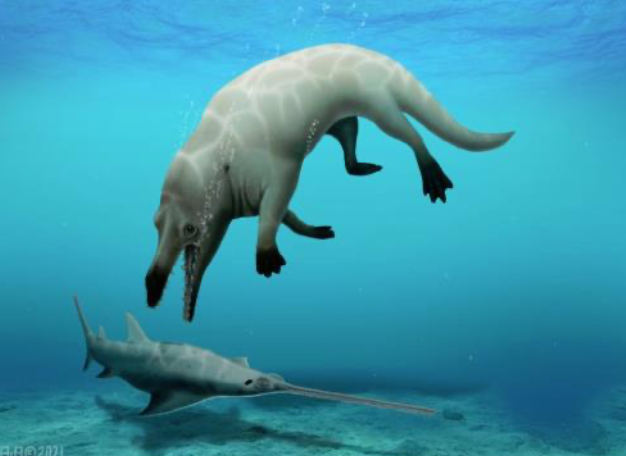By Pravar Mukkala
Egypt, Aug 27: Scientists in the Fayum Depression in western Egypt discovered the fossils of a whale ancestor which could walk on land and swim in water. The species was named Phiomicetus anubis and is part of a family of proto-whales, the protocetids. The protocetids lived in the Eocene epoch, a period that lasted from about 56 to 34 million years ago (mya).
Phiomicetus anubis was about ten feet long and had a weight of about 1,300 pounds. It had a jackal- like head. This is why it was named after Anubis, the Egyptian jackal-headed god of death, the afterlife, and mummification. This whale’s jackal-like head allowed it to feed like a raptor with its powerful jaws. Phiomicetus anubis was a threat to most of the other animals in its area.
Phiomicetus anubis’s fossil allows scientists to gather more data and learn more about the ancestors of today’s whales. The world’s earliest whale, Pakicetus attocki lived in the seas around the Indian subcontinent about fifty million years ago. The P. Anubis fossil sheds more light on the details of when whale ancestors moved out of the India-Pakistan area to disperse around the world.


